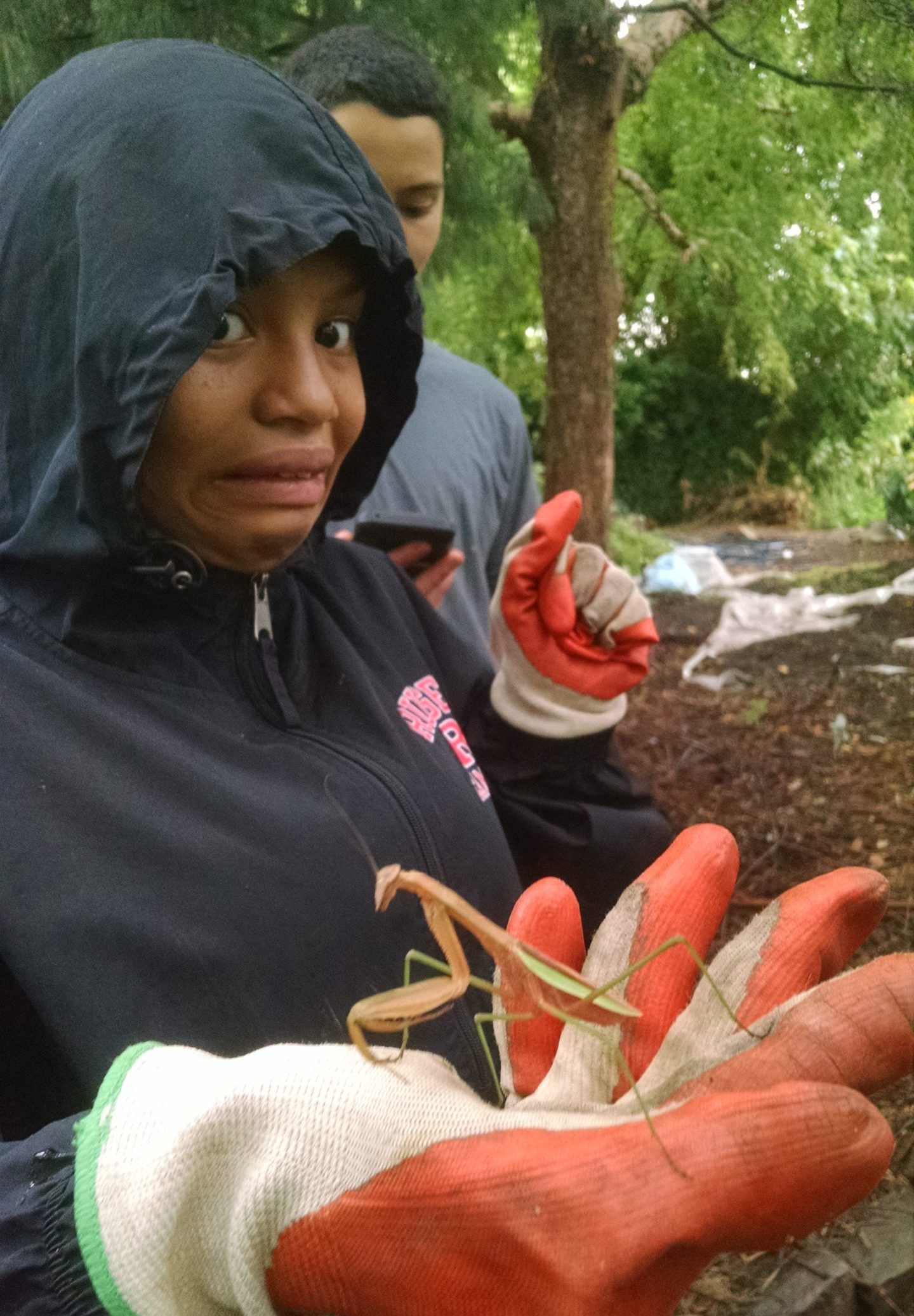A Tour of Waterfront South
As you may know, the Center for Environmental Transformation runs a 24-bed retreat center in Camden, NJ, specifically in the neighborhood of Waterfront South, an area badly trampled by environmental injustice. Waterfront South is the home of Sacred Heart Parish, from which CFET sprung, and Sacred Heart School, but it also hosts a regional sewage treatment plant, a trash-to-steam plant, and countless businesses that crush cars and old concrete, that recycle scrap metals and newspapers, that create root mulch, with all of the accompanying problems that such operations bring, such as odors, truck traffic and air-quality problems, just to name a few. Oh, and did I mention that people live here, as well?
Part of almost every retreat at CFET is what we refer to as an Eco-Tour, a walk through the neighborhood surrounding our facility and a discussion of some of the history of the area and the socio-economic and political influences that allowed businesses like I described from coming into a residential neighborhood. I had the pleasure of leading such a tour recently, with a group of students staying at the center.
About twenty minutes into the tour, as I was pointing out the buildings of the sewage treatment plant, and the trash-to-steam facility and the mulch company (it’s often more of an olfactory experience than a visual one, and this day was no exception), one of the students raised her hand and asked, very respectfully, “Even though these companies cause problems, they’re creating jobs, right? And doesn’t Camden need jobs?”
“That’s a great question,” I replied, “and there’s no easy answer to it. Jobs are critical, no doubt. And let’s not forget that these are businesses providing goods and services that we need, right? I mean, we certainly need a sewage treatment plant, somewhere, right? And where do we expect our old cars to go when they’re no longer wanted? And trash has to go somewhere, doesn’t it?”
A spirited discussion followed, with other students chiming in, offering observations, fears, suggestions and other questions, just the kind of discussion that we hope a visit to CFET stirs up among our guests. Some of the comments included “how can you claim economic growth when it’s done at the cost of children’s health?” or “wouldn’t it be more fair to spread businesses like these around the region, so no single town or neighborhood bears the brunt of the burden?”
The discussion ended but our tour continued for another hour or so. The students asked more questions, many good ones, many unanswerable, because, to my view anyway, much of what has been done to Waterfront South, in the name of progress and development, is indefensible. And now that the damage has been done, and the health risks to the residents continue and sometimes worsen, interest in mitigating those risks can be hard to find. The regional sewage treatment operation (CCMUA), under the direction of Andy Kricun, has made great strides in minimizing the effects its presence has on their neighbors. The same cannot be said for other businesses in the area.
Places like Camden are easy victims to powerful business and political forces, and their citizens are often without a voice. But we all suffer when a child in Camden suffers respiratory problems caused by truck fumes, or when families can’t open their windows on a nice day because of the stench. We all suffer because we’re all in this together. Our air and our water are here for all of us, to be shared equally, and we’re all diminished when environmental damage is done by some at the expense of others. We have a shared responsibility to act as stewards of the gifts that God has given us and we have a similar shared responsibility to care for the most vulnerable members of our society. Acts of environmental injustice like the kind our guests see in Waterfront South are instances of our failure to meet both of those responsibilities.
Our young visitor was absolutely right: jobs are important, especially to the residents of Camden, where unemployment rates are way too high and graduation rates are way too low. Whether the stream of businesses moving to Camden, enticed by hefty tax incentives, is going to create jobs for Camden residents is yet to be determined and is a topic for another time and space. If that does happen, and, if the city can gain some financial strength and dedicate it to improving the quality of the lives of its residents, perhaps take some steps to improve the health of those who suffer from the poor air quality and soil contamination that remain the legacy of past recklessness, now that’s a development that the residents of Camden would embrace.
Bill Harden, Member, Board of Trustees, CFET



